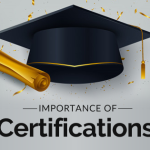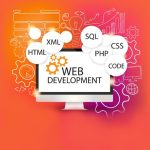Within the various programs, Logical Creations Education Research Institute (LC-ERI) organizes a number of courses with the aim of participant capacity building. The scope of courses is primary based on sustainability and includes topic management, economy, engineering, and low. Some of the courses are introduced below:
Project Management
The goal of this course is to equip the students with fundamental knowledge that supports project management process including initiation, planning, scheduling, controlling, and closing. Topics include triple constraints planning and managing (scope, schedule, budget). In the scope Product break down structure, work break down structure; schedule: mile stone plan, network diagrams, Gantt chart; budget: resource allocation, time phase budget, cost plan; project crashing, uncertainty analysis, risk management plan; project management software. The course will help project managers, researchers, engineers, team members, to identify: all activities within project, duration of the project, proper resource allocation, risk identification and treatment, as well as efficiently manage projects.
Statistics for Managers
The goal of this course is to provide specialized course from probability and statistics with applications in business. Topics include random variables, histograms, probability distributions, quantiles, central limit theorem, confidence intervals, mean variance, covariance, correlation, hypothesis testing, ANOVA, and linear regression. The course will help managers to make evidence-based decisions based on analyzed business data.
Statistics for Researchers
The goal of this course is to provide specialized topics for research methods that include research design and statistical analysis. Topics include random variables, histograms, probability distributions, quantiles, central limit theorem, confidence intervals, mean variance, covariance, correlation, hypothesis testing, ANOVA, and linear regression. The course will help researcher to set proper hypothesis (or identify proper research questions), analyze data and correctly interpret results.
Statistics with Microsoft Excel
The goal of this course is to equip the students with Microsoft excel data analysis tool pack. Topics include descriptive statistics, hypothesis testing, ANOVA, F-test, t-test, correlation, linear regression, random number generation, histogram. The course will help researchers, engineers, managers and analyst to identify proper tool to analyze data set and correctly interpret results and accordingly make decision.
Quality Management
The goal of this course is to equip the scientific foundations and practical applications of quality management methods to improve product quality and process efficiency. Topics include quality definition, terminology, quality evolution, statistical methods for quality control and improvement, quality philosophies, relationship between quality and productivity, quality cost, legal aspect of quality. The course is intended to individuals who want to acquire fundamental knowledge quality management and will help business owners and managers to improve their business to the next level by adding value to clients.
Statistical Process Control
The goal of this course is to introduce statistical process control (SPC) and understanding the SPC chart patterns. Topics include x-bar R charts, x-bar S charts, p-chart, c-chart, u-chart, control limits, specification limits, process stability, and rules for the chart pattern understanding. The course is intended to individuals who want to acquire knowledge in SPC such as engineers, managers, and will help them to get early diagnoses of the processes they are responsible for and to apply preventive measures or improve the process outcomes.
Lean Six Sigma
The goal of this course is to provide basics of Lean and Six Sigma concept with the aim of improving business results. Topics include seven (eight) types of waste, methods for identification, seven basic tools of quality, Six Sigma concept, DMAIC/ DMADV methodologies. The course will help engineers, managers to reduce the waste from their processes, improve their processes and systems and achieve financial benefits.
Introduction to Probability and Statistics
The goal of this course is to provide general introduction to probability and statistics with applications. Topics include random variables, histograms, probability distributions, quantiles, central limit theorem, confidence intervals, mean variance, covariance, correlation, hypothesis testing, and linear regression. The course will help student to understand basic statistical terminology and perform simple statistical analysis.
Statistics for Engineers
The goal of this course is to provide specialized topics from probability and statistics with applications in engineering. Topics include random variables, histograms, probability distributions, quantiles, central limit theorem, confidence intervals, mean variance, covariance, correlation, hypothesis testing, and linear regression. The course will help engineers to make evidence-based decisions based on analyzed engineering data.
Product Design and Prototyping
The goal of this course is to help student to turn product idea into reality. The course teaches steps how a product is created through product development process. This is a practical course, in which a student is going to learn:
- how to turn your own product ideas to reality;
- how to create your first 3D product model virtually;
- how 3D printing, CNC machining and laser cutting turn your virtual model to physical product (prototype).
The course offers some insight into the world of product design, development and prototype manufacture gained from real world projects and academic experience. This includes, techniques to work with metal and plastic parts as well as assemblies will be learned and practiced. Virtual 3D models are going to be created using Computer Aided Design (CAD) software such as Solid Works or Inventor. Students are going to have opportunity to create 3D geometric models using primitives and Boolean operations as well as assemblies. Created 3D CAD models will be made using rapid prototyping processes either additive (3D printing) and subtractive (CNC machining) technologies as well as assemblies.
Introduction to MATLAB/Simulink
The goal of this course is to equip participants with both, MATLAB or SIMULINK computational software skills for various engineering systems. Topics include intro to bulid-in function of MATLAB, data visualization with MATLAB, conditions, loops, user defined functions, read and write to files, intro to Simulink, modeling using Simulink and MATLAB, connect hardware to MATLAB/simulink. The course will help participants to apply modeling and simulation techniques learned in various engineering systems.
Introduction to Microcontrollers
The goal of this course is to equip participants with the core concepts of microcontrollers and their use in embedded systems. Topics include intro to microcontroller and its programming; sensors and actuators; general purpose input/output peripherals; C, C++, IDEs; registers and interrupts; application. The course will help participants to recognize needs for microcontrollers and to apply the acquired skills in an engineering application.
Introduction to Programmable logic controllers
The goal of this course is to equip participants with the core concepts of Programmable logic controllers (PLCs) microcontrollers and their use in industrial systems. Topics include intro to PLCs and their programming; sensors and actuators; ladder logic diagram; counters, timers; and application. The course will help participants to apply the taught skills in an engineering application.
Web Application Development
The goal of this course is to cover the basic and advance web technologies. Topics include: HTML, CSS, JavaScripts, jQuery, Bootstrap and PHP. this course helps students to build a static, dynamic and innovative website.
Quantum Computing and Programming
The aim of this course is to provide a strong background in Quantum Computing and modern programming tools. The course covers topics such as Linear Algebra for quantum computers, Qiskit programming tool for creating quantum programs and circuits. It also gives the students an opportunity to run programs on real quantum computers using IBM Quantum experience.
Essence of Labor Law relations
The goal of this course is to provide basic knowledge of Labor law relations in the contemporary law. Topics include types of working relations, essential elements of employment contracts, employees basic rights and duties overview, employers basic rights and duties overview, types of solving conflicts in employment. This course is intended for individuals who want to get the overview of the labor law, and practical knowledge on contracts and solving the dispute.
Legal Protection of Environment
The main objective of this course is to familiarize with the terminology of Environmental Law, national and international regulations in this field of Law (and convergent legal areas such as criminal, civil and administrative Law), so that individuals would be able to argumentative and competently discuss the environmental and legal issues with the application of acquired knowledge into practice. Topics include basic understandings of ecology and Environmental Law, Global implications of disrupting of the ecological balance, Condition and management of the natural environment, Evolution of approaches to the management of the natural environment, Relation between the state and society towards the protection of the natural environment, Positive and legal regulations within the field of environmental protection in EU. After this course attendees will be able to develop critical opinion on this topic and suggest legal and practical solutions.
Fight against Corruption and protection of Whistleblowers
The main objective is to raise the knowledge and awareness on corruption, its main forms, preventive mechanisms and its punitivity. Legal protection of whistleblowers will be presented, so at the end of the course, attendees will have enough knowledge to recognize coruptive actions and what are the rights and duties of whistleblowers and how to be protected.
Legal Drafting and Writing
This course aims to help attendees to master the necessary knowledge about the process of drafting general and special legal documents. The topics cover introduction to legislative procedure, content of legal norm, hierarchy of legal acts, structure of legal regulation, nomotechnical parts of regulation, terminology of regulation. Attendees will be able to comprehend rules of legal drafting.





